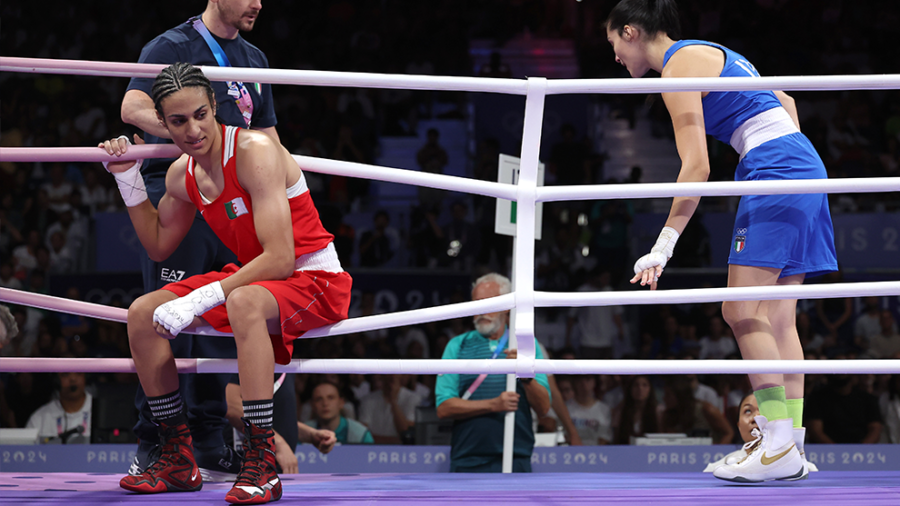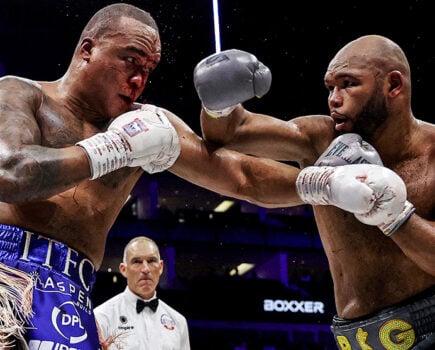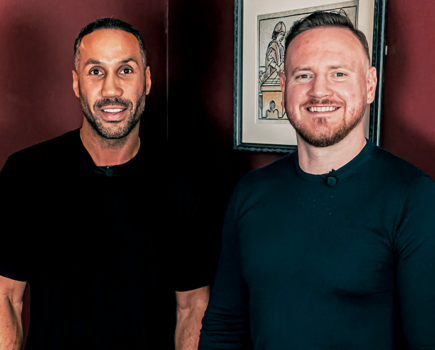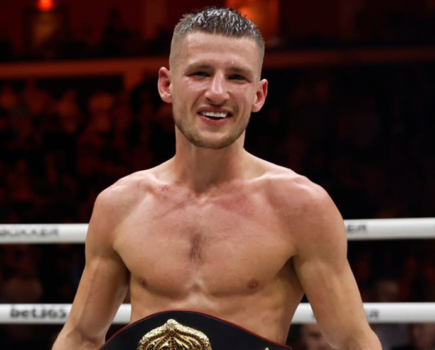By Mark Baldwin
THE Paris Olympics should be a celebration of everything that is good about sport. But despite the usual incredible heroics inside the sporting arena, yet again, boxing has been tainted by controversy from virtually every imaginable angle, not least in the scoring criteria where a number of fights have been riddled with cries of robbery. Claims that, in some cases, have a lot of validity.
However, many of the headlines have been centred around Lin Yu‑ting of Taiwan and the Algerian Imane Khelif. Most of that noise has been a large case of misrepresentation and blatantly false and ignorant reporting.
Neither fighter was born a man. They have both always competed in the female ranks with varying degrees of success. Lin Yu-ting is a former two-time World Amateur Champion and has wins over the current unbeaten WBC featherweight champion Skye Nicolson (below). Imane Khelif competed in the Tokyo Olympics and claimed a silver medal at the 2022 World Amateur Championships.
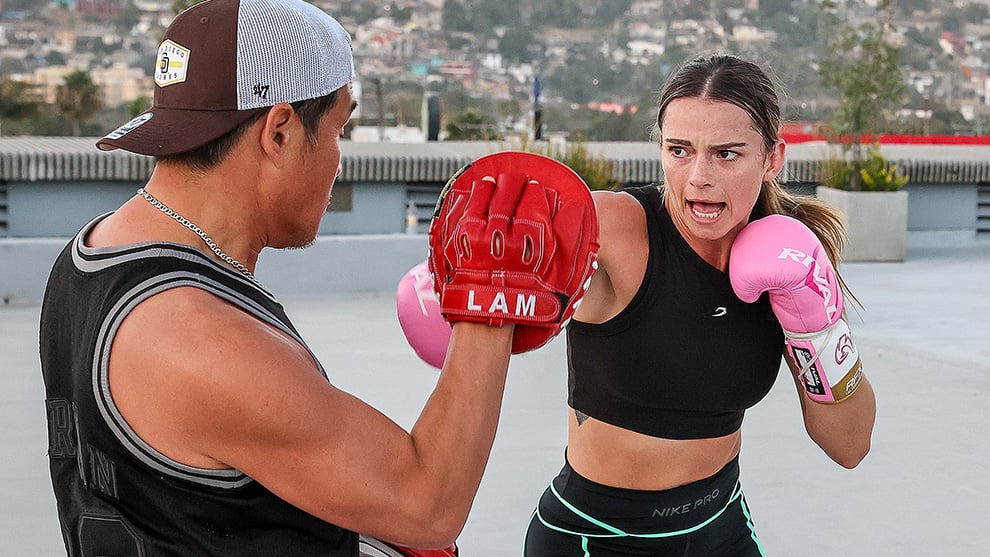
September 12, 2023; Tijuana, Baja California, Mexico; Skye Nicolson trains ahead of her bout versus Sabrina Maribel Perez on the Matchroom Boxing card on Friday, September 15th at Auditorio Municipal Fausto Gutiérrez Moreno in Tijuana, Baja California, Mexico. Mandatory Credit: Melina Pizano/Matchroom.
Without going too deep into the medical side of the story, Boxing News has previously written on Imane Khelif, which simplifies the issues as well as anything else I have read on the subject:
‘Sources claim doctors have said the 25-year-old has a disorder of sex development (DSD), which can cause women to have XY chromosomes and the same testosterone levels as males. Women typically have two X chromosomes, while men typically have an X and Y chromosome.
‘South African runner Caster Semenya, who won 800 metres gold at the 2012 and 2016 Olympics, had a similar condition. Semenya was controversially forced to take drugs like the contraceptive pill to lower her testosterone levels.’
The finer details of the ongoing, and now beyond toxic dispute have been reported in depth elsewhere multiple times. In simple terms, the International Boxing Association (IBA) disqualified the two fighters at last year’s World Amateur Championships after they were judged to have failed gender eligibility tests, albeit after both fighters had already progressed deep into the tournament. But the International Olympic Committee (IOC) has allowed both to compete in Paris.
On Thursday, Mark Adams, IOC spokesman, put out the following statement:
“What I’d repeat is all the competitors comply with the competition eligibility rules, and that’s as it should be. That’s how these boxers concerned have taken part in these Games, have taken part in previous world championships, have taken part in previous Olympic Games, and have taken part in regional and continental competitions. They comply with the eligibility rules, and I think that’s as it should be and how it can be.”
Both organisations are currently in dispute over the future of boxing in the Olympics. They are divided on many things. The eligibility of Imane Khelif and Lin Yu-ting only form part of the many differences that they have.
But potentially, the most serious, at least in the short term. If any issue needs a united stance and one based on actual factual medical science, it’s this one. Different rules depending on what side of the street you reside on. Boxing in a nutshell.
The ongoing issues between the IOC and the IBA are threatening the ongoing participation of boxing in the Olympic arena. But more imminently, the dispute over the right of Khelif and Yu-ting to fight in Paris is doing the sport, or any of the fighters, especially the two fighters in the eye of the storm, no favours whatsoever. All concerned are being put in an impossible situation. And one that could and should have been avoided.
Khelif and Yu-ting have done nothing wrong. They are not transgender, as wrongly stated by many with very large platforms. People who, quite frankly, should know better. The two fighters have been the victims of unimaginable online shaming and bullying. The scrutiny and abuse they have had to endure in recent days has been nothing short of disgusting. They have been allowed to fight. They have shown up to fight. That is all they have done. The fault, if any, does not lie with them. If you think they should not be competing in Paris, or anywhere else for that matter, then aim your venom in the right direction. And do it armed with facts.
Amy Broadhurst, who beat Khelif two years ago, offered her opinion, saying: “I think it’s the way she was born, and that’s out of her control. The fact that she has been beaten by nine females before says it all.”
Skye Nicolson, who has sparred with both fighters and has been beaten by Yu-ting, has also spoken up in defence of the two fighters. There have been others.
Even the Italian fighter Angela Carini, the boxer who pulled out of her bout in Paris with Khelif after just forty-six seconds, has now dramatically changed her stance.
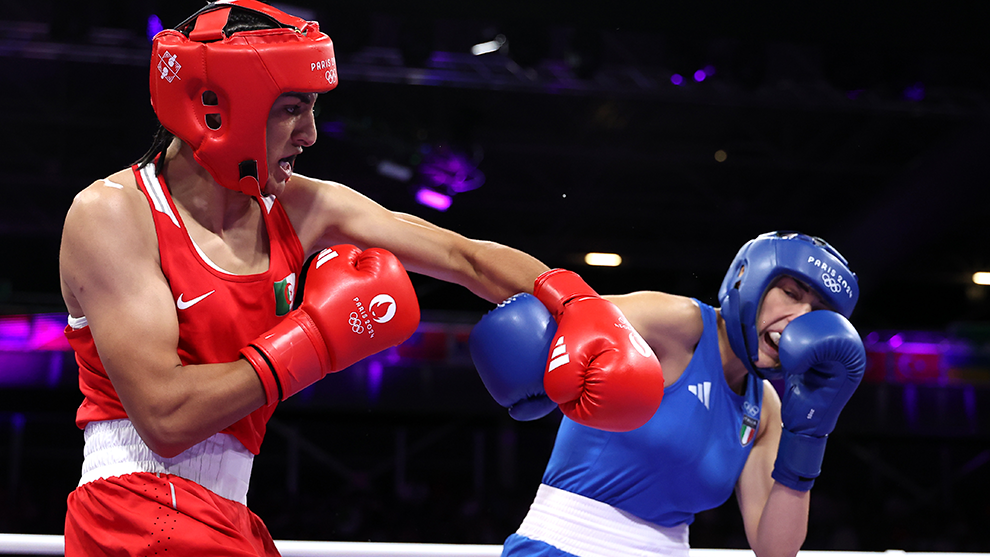
Imane Khelif and Angela Carini exchange punches (Photo by Richard Pelham/Getty Images)
“All this controversy makes me sad. If the IOC said she can fight, I respect that decision. I want to apologise to her and everyone else. I was angry because my Olympics had gone up in smoke.”
Not all the online coverage is negative, but sadly, most of it is, nearly all of it based on a lack of understanding of the facts. As we have seen on the streets of the UK in the past week, mob rule doesn’t make you right. Sometimes, you just need a bit of balance.
But sweeping aside all the online noise and the divisions surrounding Khelif and Yu-ting, for me, the issue can be narrowed down to:
Should Khelif and Yu-ting be penalised for a condition that they are born with? But irrespective of that, is it fair to everyone else if they are allowed to fight? Is that really fair competition? And most important of all, is it safe for Khelif and Yu-ting to continue boxing?
The two-weight world champion Natasha Jonas (below) says:
“I don’t blame the two fighters one bit. But if it’s unfair, regardless of the reason, then it’s still unfair. Athletes of a right to compete on a level playing field. The IOC has set a precedent before to ban an athlete in a non-contact sport.
“So, not to do it in a contact sport, where the aim is to inflict harm on the other person, I think, is outrageous. It just can’t be one rule for one and another for someone else. If you set a rule, it has to be across the board, but especially in combat sports.”
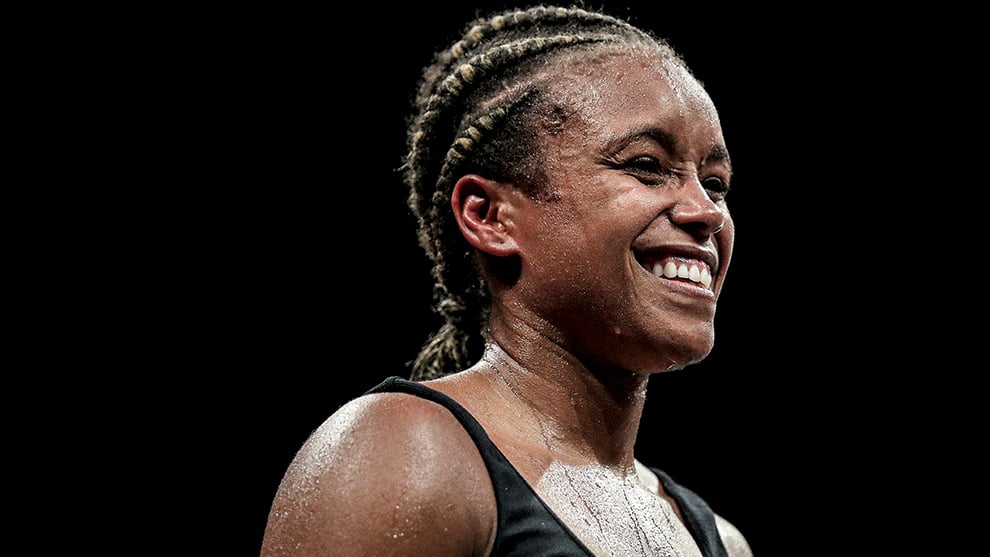
Natasha Jonas (Lewis Storey/Getty Images)
The keywords of Jonas are, “If it’s unfair, regardless of the reason, then it’s still unfair.” We just need answers.
As the UK Culture Secretary Lisa Nandy said to Sky News this week, it’s about finding that balance between inclusion, fairness, and safety.
As a former runner myself, I can vividly recall the athletics career of Caster Semenya. It was obvious that the South African had far more power and endurance than her fellow athletes. The results and her times tell us that. If that translates to boxing. We most certainly have a problem. We shouldn’t be in this situation. Khelif and Yu-ting shouldn’t be in this situation either. As Jonas added, “No boxer should be put in a position where they are being forced or pressured into not fighting.”
Khelif and Yu-ting haven’t just popped up over the last few years. They have extensive amateur careers behind them already. But that doesn’t mean we don’t have a problem. Research in horse racing, for example, seems to indicate that women are more prone to concussions.
Couple that with the obvious dangers of boxing, the urgency in resolving this is paramount. In simple terms, we need those answers. And quickly. All concerned need clarity on many things.
All we need to know is: do Khelif and Yu-ting pose a greater risk to their opponents? If the answer is yes, the decision is a very easy one to make. But that also works the same way if the answer to the above question is no.
But regardless of the answer to that question, the respective bodies just need to resolve it. This isn’t someone just running around a track a couple of times.

